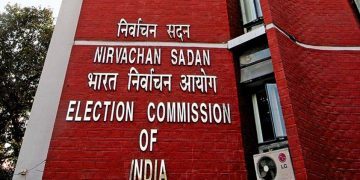Sambalpur: Sales of Sambalpuri sarees have sharply declined since the introduction of Goods and Services Tax (GST) July 1. Although the lowest slab of GST, 5 per cent, is being imposed on raw materials used in the production of these sarees, weavers and sellers say they are forced to take huge cuts on their margins, which ranged from Rs400 and Rs600 prior to GST.
GST on yarn and colour are making production a costlier proposition. Santosh Meher, a weaver and seller, says the increase in price of colour and yarn has increased the price of these sarees. A bundle of yarn which used to cost Rs50, now comes at Rs60; Similarly 100 grams of dye which used to cost Rs40, now costs Rs60. “This has increased the cost of the finished product and customers are reluctant to buy these. It will be difficult for us to continue this trade as we are already facing great hardship to run our families.
Each Sambalpuri saree takes a team of five to six weavers 8 to 10 hours of work to produce. The time required rises with the intricacy of design involved. The cost of a saree is decided by including all the costs and weavers are reluctant to reduce margins despite decline in volume of sales.
The increasing availability of cheaper duplicates in the market is affecting traditional weavers further. While shopkeepers claim that shoppers are satisfied with cheaper alternatives, Sambalpuri saree aficionados such as Sanjukta Panda is worried about the fate of the famed dress. She feels the saree will lose its market unless the government intervened. PNN






































